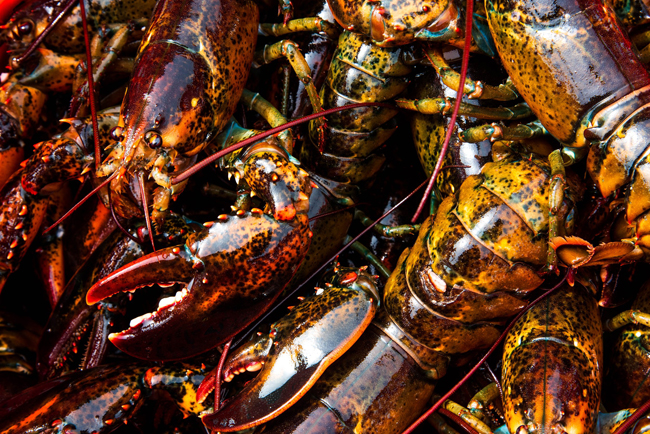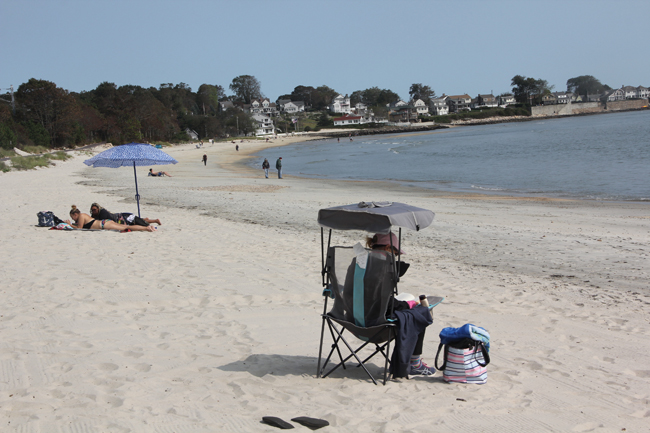— Published by Stony Brook University's SBU News
Stony Brook, NY, March 3, 2023 - New York Sea Grant (NYSG), along with Connecticut Sea Grant (CTSG) and the U.S. Environmental Protection Agency’s Long Island Sound Study (LISS) Research Grant Program, has awarded more than $6.3 million in total funds to support nine research projects — five of which are administered at Stony Brook University — that will focus on Long Island Sound marshes, water quality and public beaches.
The projects, from which information will be sought that can be used to improve the conditions of the estuary for humans and wildlife, will be conducted over two years beginning this spring.
“This year was the largest research competition to date resulting in the selection of nine excellent and diverse studies that will address priorities related to historical and current water quality conditions, habitat and fisheries health and restoration, and Sound access,” said NYSG Director Becky Shuford. “The results will have a direct benefit to the communities, coasts, critters, and waters of the Long Island Sound Estuary.”
Below are details on two of the nine funded research projects led by SBU investigators.

“We’ll be analyzing historical data to evaluate how cold- and warm-adapted fish species have responded to climate-induced changes in Long Island Sound,” said SBU investigator Yong Chen. This includes such cold-water species as the American Lobster (pictured) and winter flounder and warm water species as blue crab and black sea bass. “This research will provide critical information to inform ecosystem management in the Sound.” Credit: The Sea Grant American Lobster Initiative.
Evaluating Changes in Suitable Habitat and Distribution of Cold- and Warm-Adaptive Fish Species in a Changing Long Island Sound to Inform Ecosystem-Based Management
Lead PI: Yong Chen, Professor, School of Marine and Atmospheric Sciences
Other Investigators: Kurt Gottschall, Connecticut Department of Energy and Environmental Protection; Kim McKown and John Maniscalco, New York State Department of Environmental Conservation
Conditions in the Long Island Sound (LIS) have been shifting due to climate change, affecting water temperature, acidity, oxygen levels and incidence of harmful algal blooms (HABs). The scientists will evaluate these shifting conditions on the distributional changes of warm-adapted and cold-adapted species of fish in the Sound.
Equitable Access to Long Island Sound Waterfront and Beaches Through On-Demand Mobility
Lead PIs: Anil Yazici, Associate Professor and Undergraduate Director, Department of Civil Engineering; Elizabeth Hewitt, Assistant Professor, Department of Technology and Society
Some communities on Long Island do not have the mobility means to use and appreciate the LIS waterfront. Project leaders are designing and piloting on-demand shuttles that will facilitate equitable public access to the LIS waterfront. The team will survey users of the shuttle service to identify changes in attitudes toward the LIS environment.
“The lack of mobility options is an important topic in transportation equity discussions,” said Yazici. “The scarcity of viable transportation options impact people’s lives, ranging from access to employment opportunities to leisure activities. Due to the project’s focus on access to natural resources, this LISS project sits at the unique intersection of transportation equity and environmental justice.”
The other three NYSG-administered projects are led by principal investigators at Clark University (along with the University of Maryland, the University of Connecticut and the University of Miami); the City College of New York (along with Columbia University and the University of Maryland College Park); and the Paleontological Research Institution. Projects spotlight issues including, respectively, linkages between residential fertilizer use and nitrogen loads to the Sound; factors that can intensify harmful algal blooms; and assessing the estuary’s past ecological conditions.

Rocky Neck State Park, a public beach in East Lyme, CT. Credit: Judy Benson/CTSG
An additional four CTSG-administered projects are led by principal investigators at UConn (along with the CT Agricultural Experiment Station and the CT Department of Energy and Environmental Protection); The Maritime Aquarium at Norwalk (along with Northeastern University, Harbor Watch and Earthplace and Sacred Heart University); UConn (along with Save the Sound); and North Carolina State University (along with UConn). These projects spotlight issues including, respectively, determining the impacts of marsh restoration efforts on Sound ecosystems and their value for wildlife; assessing the expected effects of warmer temperatures on salt marshes associated with climate change; analyzing water quality at two CT public beaches that are among the most frequently closed or under swim advisories due to high bacteria levels; and quantifying how fish can be expected to respond to exposure to “forever chemicals” (PFAS) in the Sound over the next five decades.
The results of this research suite will build on the substantial body of investigations funded through the LISS Research Grant Program administered by CTSG and NYSG since 2008, which has contributed to improved understanding and management of this nationally recognized estuary. Cumulatively, this represents the largest research investment in the Sound, which has been designated an estuary of national significance and one of the most valuable natural resources for both states.
For more, read the complete NYSG press release.
More Info: New York Sea Grant
New York Sea Grant (NYSG), a cooperative program of Cornell University
and the State University of New York (SUNY), is one of 34 university-based
programs under the National Oceanic and Atmospheric Administration’s
National Sea Grant College Program.
Since 1971, NYSG has represented a statewide network of integrated
research, education and extension services promoting coastal community
economic vitality, environmental sustainability and citizen awareness
and understanding about the State’s marine and Great Lakes resources.
Through NYSG’s efforts, the combined talents of university scientists
and extension specialists help develop and transfer science-based
information to many coastal user groups—businesses and industries,
federal, state and local government decision-makers and agency managers,
educators, the media and the interested public.
The program maintains Great Lakes offices at Cornell University, SUNY
Buffalo, SUNY Oswego and the Wayne County Cooperative Extension office
in Newark. In the State's marine waters, NYSG has offices at Stony Brook
University in Long Island, Brooklyn College and Cornell Cooperative
Extension in NYC and Kingston in the Hudson Valley.
For updates on Sea Grant activities: www.nyseagrant.org has RSS, Facebook, Twitter, Instagram, and YouTube links. NYSG offers a free e-list sign up via www.nyseagrant.org/nycoastlines for its flagship publication, NY Coastlines/Currents, which is published quarterly.